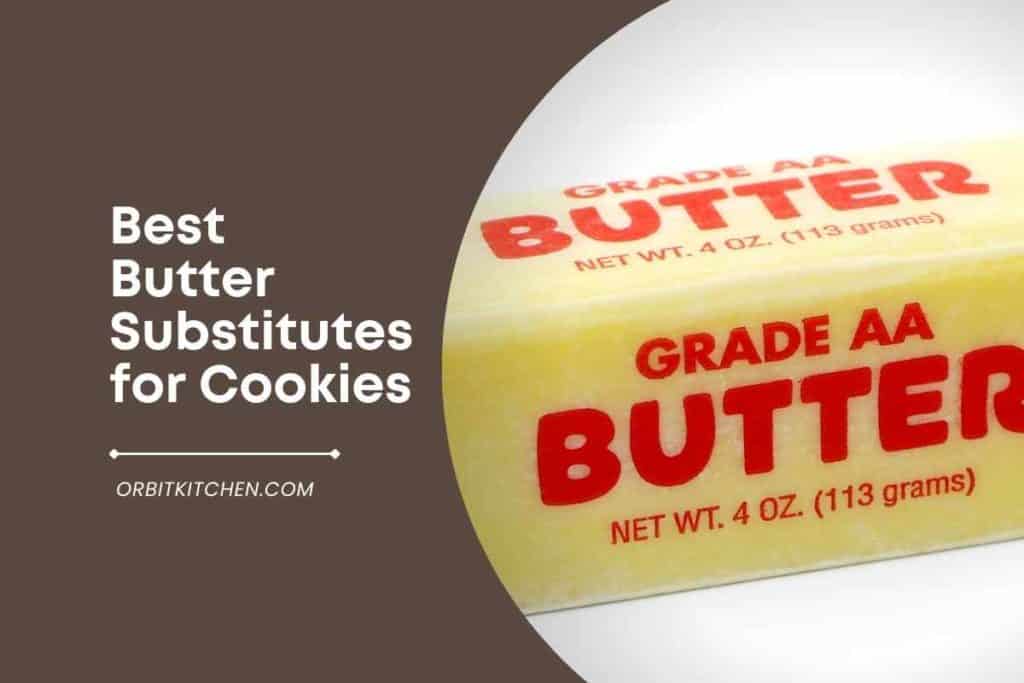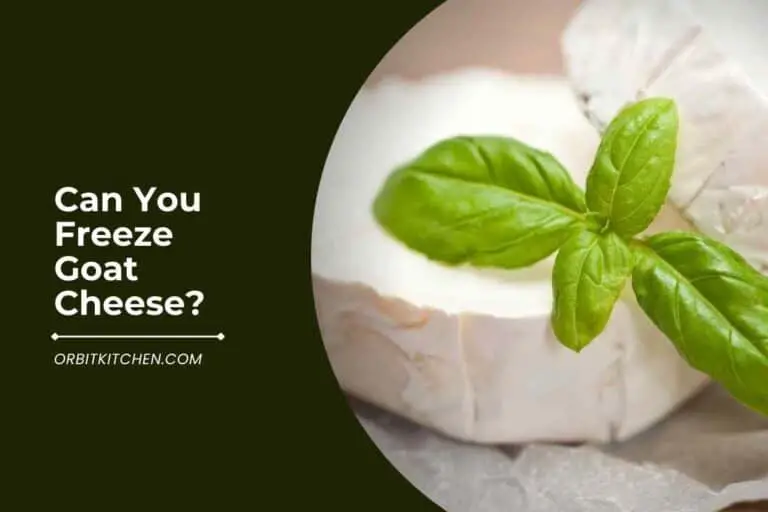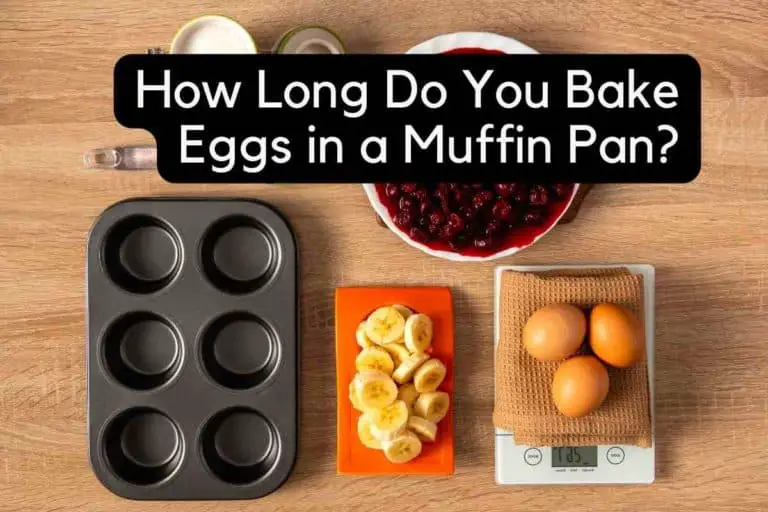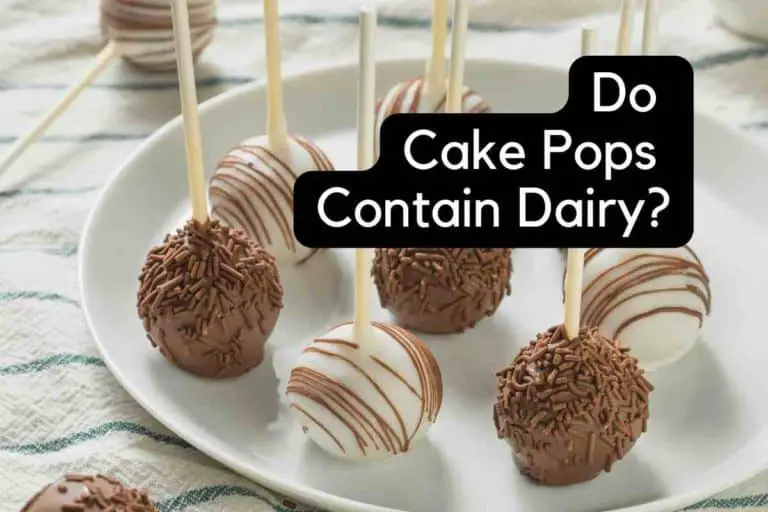11 Best Butter Substitutes for Cookies
Butter substitutes for cookies are a great way to save money and calories. There are many different types of butter substitutes on the market.
In this guide, we have compiled the list of the best butter substitutes for cookies. For instance, some replacements are better for baking while others are better for spreading on toast. Additionally, some alternatives are vegan while others are not.

What are the Best Butter Substitutes for Cookies?
You can make cookies without butter by using the following 11 substitutes:
1. Margarine
Margarine is a type of butter alternative that is made from vegetable oils. It is typically lower in saturated fat than butter and has a more neutral flavor.
While margarine may not be the best butter substitute for every cookie recipe, it can be a good option in some cases. For example, margarine can be a good choice if you are looking for a lower-fat opportunity.
Additionally, margarine often works well in recipes that call for creaming the butter and sugar together, as it can be easier to cream margarine than butter.
Margarine is a spreadable, butter-like foodstuff made from vegetable oils. It is used as a spread on bread, toast, and other breakfast foods. Margarine is also used as an ingredient in baking and cooking.
Some benefits of margarine include: It is a good source of healthy unsaturated fats. It is lower in saturated fats than butter.
It is a good choice for people who are lactose intolerant or have allergies to milk products. Margarine is usually cheaper than butter.
Read Also: 9 Best Salted Butter Substitute
2. Shortening
Shortening is a type of fat used in cooking and baking. It is made from vegetable oils that have been hydrogenated to solidify them. It has a higher melting point than butter, making it ideal for baked goods that need to hold their shapes, such as pies and pastries.
Shortening is a good butter substitute for cookies because it is solid at room temperature, like butter, and it has a high-fat content, which makes for a tender and flavorful cookie.
It is a type of fat used in cooking and baking. It is made from vegetable oils that have been hydrogenated to solidify them.
Shortening has many benefits over other types of fat. It doesn’t change the flavor of food. It makes baked goods fluffy and moist. It has a long shelf life.
3. Coconut Oil
Coconut oil is an edible oil extracted from mature coconuts’ meat. It has a long history of use in tropical countries and has been used both for cooking and as a skin moisturizer.
Coconut oil is a “medium-chain triglyceride,” which means it is metabolized differently than other types of fat. It comprises about 90% saturated fat, 6% monounsaturated fat, and 3% polyunsaturated fat.
The saturated fat in coconut oil is made up of medium chain fatty acids, metabolized differently than the long chain fatty acids found in other oils. It can be used as a butter substitute for cookies. When used in baking recipes, it can help to create a softer, more moist cookie.
It can also help to add a slight coconut flavor to the cookie, which can be a nice addition to some recipes. Coconut oil can help improve your cardiovascular health by reducing bad cholesterol and increasing good cholesterol.
Coconut oil can help improve your cognitive function and memory and help improve your skin and hair health. It can help boost your immune system. Coconut oil can help improve your digestion.
4. Olive Oil
Olive oil is a type of vegetable oil extracted from olives, the fruit of the olive tree. It is a popular ingredient in many Mediterranean dishes and is also used in cosmetics and as a health supplement.
Extra-virgin olive oil is the highest quality olive oil and has the most antioxidants, which are believed to have health benefits. Virgin olive oil is also good quality oil but has fewer antioxidants than extra-virgin olive oil.
Olive oil is a good butter substitute for cookies because it is a healthy alternative to butter and has a similar consistency. It is a natural source of monounsaturated fats, which can help to lower cholesterol levels and reduce the risk of heart disease.
Also, it’s a good source of antioxidants, which can help to protect against cell damage and reduce the risk of some chronic diseases such as cancer.
It has been shown to have anti-inflammatory properties, which can help to reduce the risk of conditions such as arthritis.
Regular consumption of olive oil has been linked with a lower risk of cognitive decline and dementia.
5. Applesauce
Applesauce is a type of sauce made from apples. It is usually made by cooking apples until they are soft and then pureeing them. Applesauce can be used as a condiment, ingredient, or side dish.
It is a good butter substitute for cookies because it is a lower-calorie option and still provides the moistness and sweetness that butter does.
Applesauce is a good source of dietary fiber. It can help regulate blood sugar levels. It contains vitamins and minerals.
6. Mashed Bananas
Mashed bananas are a popular food made by mashing ripe bananas with a fork or a blender. The result is a smooth, creamy, and sweet food that can be eaten as is or used as an ingredient in recipes.
Mashed bananas are a good butter substitute for cookies because they are a natural source of fat and moisture. This makes them ideal for creating a soft and chewy cookie.
Some benefits of mashed bananas are that they are a good source of dietary potassium, dietary fiber, and vitamin C. They are also low in sodium and calories.
7. Pumpkin Puree
Pumpkin puree is a thick, creamy, and smooth mixture made from cooked and mashed pumpkins. It can be used in sweet as well as savory dishes.
You can use pumpkin puree as a healthy alternative to higher-fat ingredients in recipes, such as butter, cream, and oil.
It’s an excellent butter substitute for cookies because it is high in fat and moisture. This makes it perfect for creating a soft and chewy cookie. Pumpkin puree is an excellent source of vitamins and minerals, including beta-carotene, potassium, and vitamin C.
Pumpkin puree is a low-calorie food, making it a great addition to a weight-loss diet. Also, it is a good source of fiber, which can help to promote regularity and prevent constipation.
8. Sweetened Condensed Milk
Sweetened condensed milk is a thick, sweetened dairy product made by evaporating milk to remove water and then adding sugar.
It is a good butter substitute for cookies because it is thick, sweetened milk that can be used in place of butter to create various cookies.
Some benefits of sweetened condensed milk include Its convenience and versatile ingredient. It can be used in a variety of recipes, both sweet and savory.
It is shelf-stable, so it does not need to be refrigerated. It is relatively inexpensive. It has a long shelf life.
9. Yogurt
Yogurt is a fermented dairy product that is made from milk and cream. It is a thick, creamy, and slightly acidic food with a tangy flavor.
Yogurt is a good source of protein, calcium, and vitamins B2 and B12. It can be a good butter substitute for cookies because it can add moisture and fat to the cookie dough.
10. Buttermilk
Buttermilk is a fermented dairy product that is made from milk. It has a slightly sour and tangy taste and is often used in baking or as a drink.
It is a good butter replacement for cookies because it has a similar consistency and can be used in the same proportion as butter. Additionally, buttermilk adds a subtle tanginess to cookies that can be pleasing.
Some benefits of buttermilk are that it is a good source of calcium and vitamin B12, it can help to regulate blood sugar levels, and it can also help to promote a healthy digestive system.
Additionally, buttermilk can help boost the immune system and is thought to have anti-inflammatory properties.
11. Cream Cheese
Cream cheese is a type of cheese that is made from milk and cream. It has a smooth, creamy texture and a mild, slightly tangy flavor. Cream cheese is often used as a spread on bread or crackers or as a filling in cakes and other desserts.
It can be used as a butter alternative for cookies. Cream cheese will make the cookies more dense and moist when used in place of butter.
Some benefits of cream cheese are that it is a good source of calcium, is high in protein, and can help regulate blood sugar levels.
Cream cheese also contains probiotics, which can aid digestion, and it has been shown to help reduce the risk of some types of cancer.
Conclusion
In the end, we hope that now you are well aware that the best butter substitutes for cookies are margarine, shortening, and oil. Each of these substitutes has a unique flavor and texture that can contribute to your cookies’ overall taste and texture. Experiment with different ratios of these substitutes to find the perfect balance for your cookie recipe.






